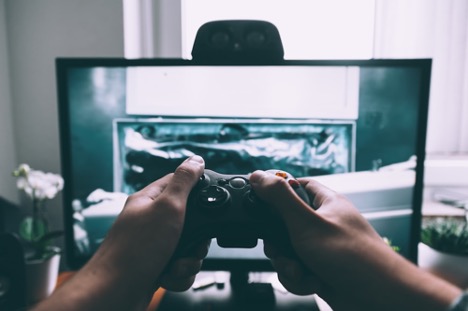Gaming is a multi-billion-dollar industry, and students spend significant time playing different video games online and offline. Gaming is often a good distraction that helps relax after a long study day. Still, a challenge associated with gaming is the inability of collegians to balance gaming and their studies. The failure to balance gaming and studies can lead to exam failure.
People aged 18 to 25 spend 7 hours gaming every week. But many still spend more than 7 hours. That’s a considerable amount of time that can be used for other productive things like completing assignments, attending training for your favorite sport, or taking care of your cluttered room. So the key is prioritizing and managing your time well. Wondering how to do it? We’ve compiled incredible tips for playing video games to keep yourself entertained and dedicate enough time to your college studies.
Plan Your School Work Effectively
A challenge most students face is thinking they have a lot of time, only to find themselves overwhelmed towards the end of the semester when the finals knock on the door. When the semester begins, look at what you need to do, your assignments, coursework, and sports calendar if you are an athlete to create a clear plan with well-laid-out deadlines for effectively managing everything.
While creating a plan, look at the things you feel you can handle on your own and those you might need help with. Proceed to determine those who will help you finish up all the tasks you have for the semester within the stipulated deadline. This strategy will help balance the time for gaming and academics as you will always ensure that you set aside time for your academic engagements to avoid being overwhelmed at the last minute.
Set Your Priorities
One thing that professional writers like those at EssayWriter do is set priorities, focusing on writing. Similarly, as a student, your priority should always be your studies, and anything between you and your studies should come second. If you have a project you need to finish within a specified duration, prioritize it. When you find yourself choosing to game rather than completing a project that has an approaching due date, then you should reconsider your priorities. There will always be time for gaming after you complete your schoolwork, but you might not get an extension from your professor if you fail to submit your assignment on time.
Separate Work Area From Gaming Area
You will face many temptations when your gaming area is close to your study station. The temptation of gaming amid a dull study session might distract you from your objectives. If you have enough space, set up your gaming station in a separate room from your study area. And if you do not have enough room to spare, you can spend more time in the library. The library is a good study environment that will keep you away from many distractions allowing you to focus solely on your studies.
Use Gaming as a Reward

One of the most efficient strategies in managing gaming and studying is using gaming as a reward after completing a task. An example of a tactic you can deploy is gaming for 20 minutes after completing a 2-hour study duration. The reward system is merely a guide on when you can play, and it helps avoid the temptation of playing whenever you find yourself near a video game.
If you have a high appetite for gaming, you will find yourself studying more as you strive to attain the reward of gaming. When you reach a point where you can study and miss rewarding yourself with a video game, you’ll have attained a significant milestone in your quest to balance your gaming and college life.
Choose Productive Games
A funny thing about the gaming world is that the more entertaining games are likely to be more addictive. Some games are so addictive that you can spend the whole night playing and trying to unlock the next levels. But you won’t lose much if you avoid such games. Once you are addicted to a game, breaking the addiction will become more challenging, leaving you with an even more significant challenge in balancing your college life.
It would help if you resorted to more productive games that unlock your thinking and abilities. Such games help you grow mentally, and the skills you gain from them can also assist you in other aspects of your life. If a game requires you to invest too much time in it, you should think twice and consider one which is more flexible.
Learn When You Should Stop
Suppose you do not know when to stop gaming. In that case, you will spend a lot of time playing video games and lagging in your studies. When you set out to the game, you should know when to stop to reduce the risk of playing for hours. You can use an alarm clock or a timer to guide you on how long you want to play and when you should stop. Determining how much time you want to dedicate to gaming and what to dedicate to other aspects of life that matter more than video games is important.
Closing Remarks
Gaming is a common activity that collegians use to distract and entertain themselves after a long day of studies. There are many advantages that students can realize from playing video games. Still, it also has the potential to lead to exam failure, especially for those who find themselves dedicating too much time to gaming and neglecting their studies.
Many approaches can be used to balance the two, and one of the most important ones is prioritizing. Once you prioritize your studies, you’ll be able to create a plan and make decisions that support your studies over gaming. Choosing productive games is also important to avoid playing games that increase your addiction risk. A good gaming and college balance is pivotal in enjoying video game entertainment while being productive academically.






![YouTube SEO in 2024 [Definitive Guide]](https://getpixie.com/wp-content/uploads/2024/02/shutterstock_1684828252-1-150x150.jpg)








